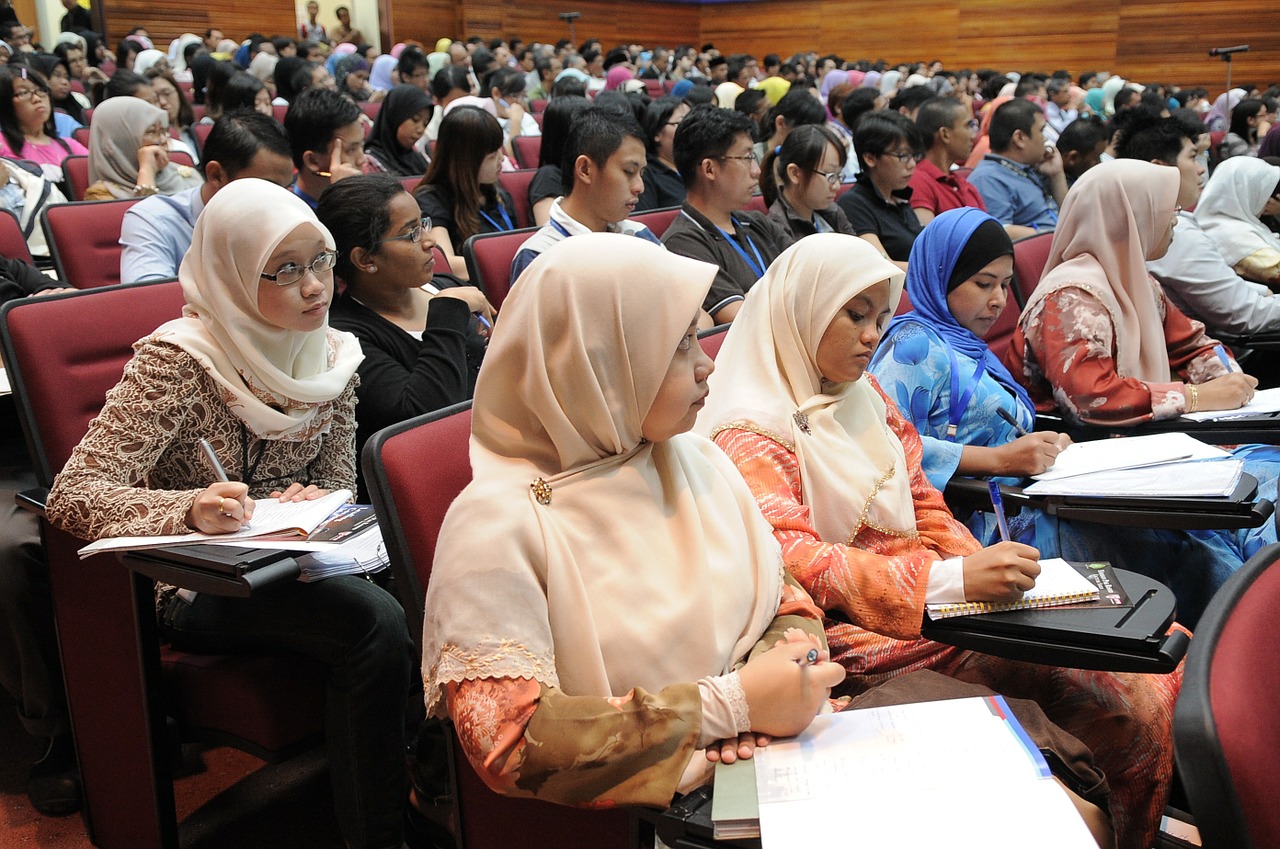Supervision is key to a PHD students’ success.
The Web is full stories of students finding it difficult to locate and work with PhD supervisors, this includes stories about PhD supervision that has ended up being a negative experience.
Across universities and disciplines, many students seem to have been poorly briefed on how they to develop their research proposal and then find the right match.
) reported that 70–87% of full-time PhD candidates across 30 institutions in the UK completed in 7 years, but doctoral attrition rates are high in North America: an estimated 40% to 50% of candidates never finish. This level of non completion alongside a rise in the number of students enrolling in PhDs.

creative commons photo by www.maxpixel.net
They also express high levels of stress, perhaps because they are aware that being matched to the right supervisor will be key to the successful completion of their PhD and future careers.
One article on the nursing profession stated ‘research has shown that effective supervision can significantly influence the quality of the PhD and its eventual success or failure. Consequently, many common problems experienced during a PhD often relate to difficulties in the supervisory process. PhD students and supervisors often have different expectations, needs and ways of thinking and working’ (Gill and Burnard 2013).
‘A clear association has been shown between quality supervision in conveying the importance of taking responsibility for their future academic career by strengthening their track record, and the number of peer-reviewed publications produced’. (Scaffidi and Berman 2011)
Postgraduate Research Experience Survey (PRES) has previously found students rate supervision as the single most important factor affecting their research experience and their ability to finish their PhDs on time. ‘According to Cowling’s (2017) report, supervision is most strongly related to happiness for postgraduage students’ (Slight, 2017).
The quality of the student-supervisor relationship during early academic career stages can be key. Anecdotal evidence suggests suboptimal supervisory relationships can cause major stress. A supervisor’s leadership style has been cities as one factor that can negatively impact on PhD students’ mental health. This can include failing to recognise stress, having different working styles to the student, and giving inappropriate or minimal feedback (Reeve and Partridge 2017).
A number of factors (varying across studies) have been found to influence PhD completion including funding, discipline, age, etc. It is important that universities support researchers who might be at higher risk of research isolation. This includes those who don’t simply fit into homogeneous groupings.
Litalien and Guay (2015) studied US PhD drop out rates and found several key factors including:
- ‘Perceived competence appears to be the cornerstone of doctoral studies persistence.
- Quality of the student–advisor relationship is confirmed as a highly important factor. Students who completed their PhD were more likely to perceive previous interactions with their advisors as supportive. Additionally, perceiving higher support by advisors helped currently enrolled PhD students feel more effective in their studies. By enhancing feelings of competence, this specific support also reduces the likelihood that students develop the intention to quit their program. Although many studies have suggested that the advisor plays a role as a determinant of PhD persistence, the mechanism by which it affects program completion has not been examined.
- Interactions with other faculty also play a role in students’ persistence. Students who completed their PhD were also more likely to perceive previous interactions with faculty as supportive’.
Finding ways to monitor and enhance the quality of the student–advisor relationship could also help to prevent and overcome problematic interactions and progression.’ (Litalien, 2015)
Current Guidance
Advice seems to vary from ‘just email academics and speak to them about your ideas’ to more detailed briefs provided to all students e.g by the UCL and University of Sussex.
What Are the Most Important Aspects of a Good Supervisor?
Rating systems of academics have been found to be a poor indication of the academic abilities. Ratings have been found to be highly influenced by the discipline, and the personal characteristics (including gender, and ethnicity) of the academic.
The normal ‘metrics’ of academia may also be less important in finding the right match than personal chemistry and a shared passion for a particular field or subject.
‘Scientists are made up of all types of people – thinkers, dreamers and practical workers – all of whom are important, but you need to find someone who thinks in the same way as you do’ (Susan Greenfield quoted by Killeya, 2008).
Students will need to decide what is individually most important to them. What might matter to one student, may be less important to another. But there are various articles and blogs on the Web that describe the sort of factors that may be important:
- Expertise in the relevant area. Some universities also provide ‘directories of expertise’ to help the student identify the academics who are most relevant to their areas of interest e.g at the University of Sussex. But it is also emphasised that students should not look for an exact match with their PhD topic, as they will need to lead on the development of their own proposal
- The academic’s status (and the contacts that come with that). However ‘big names’ are less likely to be able or willing to give the students much of their time. A deciding factor for students in this case is whether or not they intend to become academics. If they want to be academics then the status of their supervisors is likely to be important to their progression.
- The balance of personal qualities such creativity or rigour/discipline in the academic and the match to the student.
- Mentoring and communication style.
- Direction or independence. Although PhDs are meant to support the progresssion towards independent study, the reality is that some academics will seek to shape their students more than others.
- The students the academic is already supervising. For example:
- have they taken students through to PhD completion . In the future it may also be possible to see ‘drop out rates’ through Government collected data on Universities.
- time likely to be taken up by their existing students. Some academics may already be supervising a large number of PhD students which means their time may be stretched.
- outcomes of PhD students they have supervised in the past. This could vary from the number of publications students produced during the PhD, to which job students ended up in after completing the Phd.
If possible, it is also advised that the student talk to the potential supervisors current PhD students and check out learning and communication styles.
By Nina Schuller
References
Brabazon, T (2013) ’10 truths a PhD supervisor will never tell you’. Times Higher Education. 11 July. Available at https://www.timeshighereducation.com/features/10-truths-a-phd-supervisor-will-never-tell-you/2005513.article (Accessed on 2 March 2018)
Chamberlain, S (2016) ‘Ten types of PhD supervisor relationships – which is yours?’, The Conversation. 11 January. Available at https://theconversation.com/ten-types-of-phd-supervisor-relationships-which-is-yours-52967 (Accessed on 2 March 2018).
Chatelle, F (2017) 6 Things to look for in your ideal PhD supervisor. FindAPhD. 28 June. Available from https://www.findaphd.com/advice/blog/2272/6-things-to-look-for-in-your-ideal-phd-supervisor (Accessed on the 2 March 2018).
Duke, D, C, and Denicolo, P, M (2017); ‘What supervisors and universities can do to enhance doctoral student experience (and how they can help themselves)’, FEMS Microbiology Letters, 364 (9), https://doi.org/10.1093/femsle/fnx090
Edinburgh Clinical Academic Track (no date) ‘Choosing a Supervisor’. The University of Edinburgh. Available at https://www.ed.ac.uk/medicine-vet-medicine/research-support-development-commercialisation/edinburgh-clinical-academic-track/advice-and-faqs/choosing-a-supervisor (Accessed on 2 March 2018).
Fuller, M. (2015). ‘Doctoral Education in the UK: Ideal Models and the Stark Reality.’ Presentation at the Australian DDOGS Meeting, Sydney, 19-20 April . Available at https://www.researchgate.net/publication/275640304_Doctoral_education_in_the_UK_ideal_models_and_the_stark_reality (Accessed 10 April 2018)
Gill, P and Burnard, P (2013) ‘The student-supervisor relationship in the phD/Doctoral process’. British Journal of Nursing. 17 (10), pp 668-671. https://doi.org/10.12968/bjon.2008.17.10.29484
Killeya, M (2008) ‘The PhD journey: how to choose a good supervisor’. the New Scientist. 20 February. Available from https://www.newscientist.com/article/mg19726442.500-the-phd-journey-how-to-choose-a-good-supervisor/ (Accessed on the 2 March 2018).
Litalien D (2015) Improving’ PhD completion rates: where should we start?’ The Wiley Network. 12 May. Available at https://hub.wiley.com/community/exchanges/discover/blog/2015/05/11/improving-phd-completion-rates-where-should-we-start (Accessed 10 April 2018).
Litalien, D and Guay, F (2015) ‘Dropout intentions in PhD studies: A comprehensive model based on interpersonal relationships and motivational resources’ , Contemporary Educational Psychology, 41, pp 218-231. https://doi.org/10.1016/j.cedpsych.2015.03.004
Lynch, S (2008) ‘Happy days: Why PhD students need a helping hand from their supervisors’. The Independent. 14 February. Available at http://www.independent.co.uk/news/education/higher/happy-days-why-phd-students-need-a-helping-hand-from-their-supervisors-781842.html (Accessed on the 2 March 2018)
Scaffidi, A, K., and Berman, J, E (2011) ‘A positive postdoctoral experience is related to quality supervision and career mentoring, collaborations, networking and a nurturing research environment’, Higher Education. 62: 685. https://doi.org/10.1007/s10734-011-9407-1
Slight, C (2017) ‘Postgraduate Research Experience Survey Report 2017’. Higher Education Academy. Available at https://www.heacademy.ac.uk/knowledge-hub/postgraduate-research-experience-survey-report-2017 (Accessed 2 March 2018)
